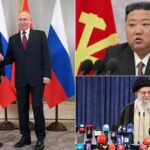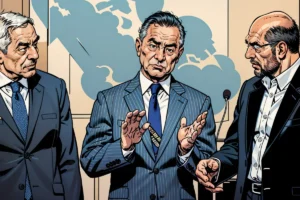ISLAMABAD PAKISTAN — Pakistan’s caretaker prime minister said Monday that Saudi Arabia and the United Arab Emirates will invest $25 billion each in his cash-strapped country within five years.
Anwaar-ul-Haq Kakar told a group of Islamabad-based foreign journalists late Monday that different sectors, such as mines and minerals, agriculture, defense production and information technology, would receive the investment. He did not elaborate.
Economic revival
The prime minister said that the Saudi and UAE investments are part of a new “strategy for economic revival” to increase foreign direct investment in Pakistan under the supervision of the recently set up Special Investment Facilitation Council, or SIFC.
Established in June, the council comprises Pakistan’s civilian and military leadership.
Kakar spoke a day after the Pakistani military chief Asim Munir, while addressing business community leaders in the southern city of Karachi, emphasized the SIFC’s potential to attract investments of up to $100 billion from Saudi Arabia, the UAE, Qatar, Kuwait and other Middle Eastern countries.
“I can confirm it,” he said when asked for his comments on the reported remarks by his military chief that Pakistan could receive an unprecedented $25 billion each from the Saudi Kingdom and the UAE under the SIFC.
Saudi and UAE officials did not immediately comment on Kakar’s assertions.
Kakar said that Pakistan’s untapped mineral deposits are estimated to be worth around $6 trillion. He noted work on the massive Reko Diq gold and copper mines in southwestern Baluchistan province was expected to start in December.
Last month, a Saudi delegation visited Pakistan to study mining sector investment opportunities and showed its readiness to tap into the Reko Diq deposits.
Pakistan is scrambling to deal with a critical balance of payments crisis. The country of about 241 million people needs billions of dollars in foreign exchange to repay international debts and bridge its trade deficit in the current financial year.
Islamabad is implementing long-delayed economic reforms in line with IMF requirements, leading to a historic increase in energy prices when inflation is already hovering at around 29%. The tough reforms have triggered almost daily nationwide protests, bloated electricity bills and soaring fuel prices.
Source : VOA News















